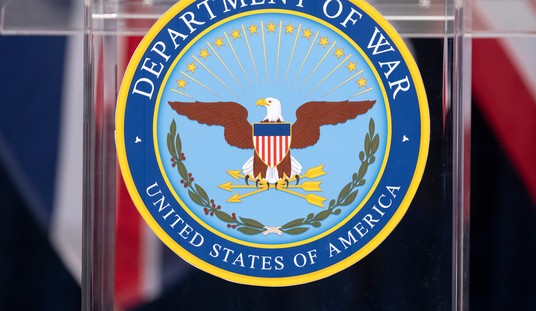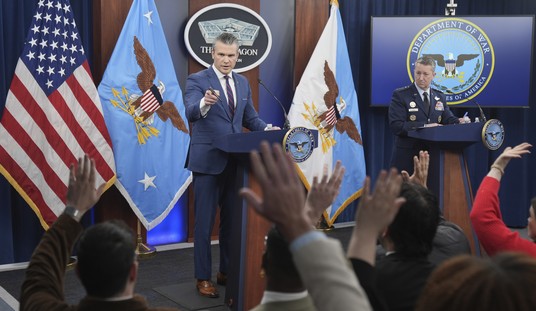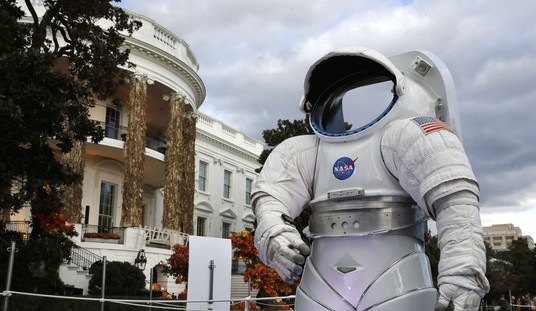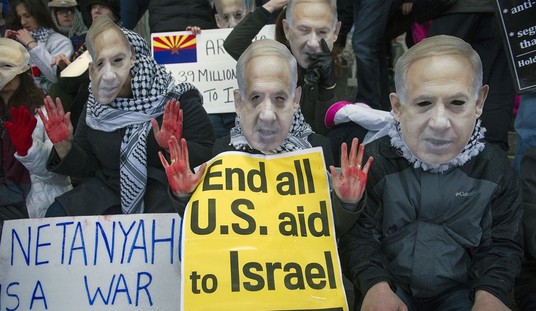And this could actually be one of those situations where Trump’s howling tweets of having been wiretapped by Obama may be something that comes back and bites him on his orange-y rear.
Maybe.
While there has been no proof provided, yet, Trump or someone on his campaign may have inadvertently found themselves surveilled by U.S. intelligence, courtesy of a controversial, yet legal loophole in surveillance laws.
“Backdoor surveillance” happens when intelligence agencies target non-citizens for surveillance – something that requires no warrant – and U.S. citizens contact those non-citizens, basically wandering into the net of surveillance.
From The Hill:
If Trump or his advisors were speaking directly to foreign individuals who were the target of U.S. spying during the election campaign, and the intelligence agencies recorded Trump by accident, it’s plausible that those communications would have been collected and shared amongst intelligence agencies, surveillance law experts say.
Wiretap orders from U.S. presidents has been outlawed since the 70s, so it’s highly unlikely President Obama would have ordered a direct wiretap of Trump, as he claimed.
There are just two authorities for wiretapping an American citizen — a Title III criminal warrant or a legal order from a clandestine intelligence court.
But there are two major surveillance policies under which intelligence agencies could have performed backdoor search of the president’s communications, neither of which would require a warrant. Both authorities govern U.S. surveillance of foreigners, one domestically and the other abroad.
Under the Foreign Intelligence Surveillance Act (FISA), which governs spying on foreigners within U.S. borders, law enforcement agencies can petition the closed-door intelligence court for a legal order to surveil a given target.
It is possible to obtain a FISA warrant on a U.S. person, but Justice Department officials would have to demonstrate to the court that the individual was acting as an agent of a foreign power.
And here’s where it gets a bit “tight” for the president: The former director of national intelligence, James Clapper, has testified that there was no FISA warrant granted for Trump or his associates. However, some are reporting that the FBI obtained authorization from the courts to monitor the activity of a pair of Russian banks.
If Trump or any of his camp were interacting with either of those banks for whatever purpose, then those activities would have been collected and examined as well, not because they were targeted, but because they were communicating with the target.
Another method of surveillance, mostly obscure, and certainly objected to by civil liberties activists, is a Reagan-era executive order – EO 12333.
The highly-redacted info gathered through 12333 involves U.S. intelligence gathering overseas. The attorney general can authorize the targeting of that American working overseas, as long as they’re deemed an agent of foreign power.
In some Obama-era amendments to the order, however, the National Security Agency can upload the information to a data base that is searchable for other intelligence agencies, automatically.
Most surveillance experts believe that if — and that’s a big if — Trump’s communications were swept up by intelligence agencies, it was likely done under a FISA court order.
“If there was a FISA wiretap order on the Russian ambassador, I see absolutely no reason why a backdoor search on that collection wouldn’t be legal and total plausible,” said Nate Cardozo, a senior staff attorney with the Electronic Frontier Foundation. “I would believe that in a second.”
Conversely, he said, “It’s possible that if they were doing backdoor searches on collection that occurred in Russia [under 12333] but unless people were calling Russia directly from Trump Tower — which would be a story in and of itself — that’s not very plausible.”
The New York Times pointed out earlier that as Obama’s administration was seeing its last days, some within the administration pushed the controversy of contacts between Trump’s associates and Russia, but that’s not the same as ordering surveillance of Trump Tower, which is what Trump claimed was happening, in his now infamous tweet.
Many of the major leaks — such as a New York Times report that agents had uncovered regular contact between Russian officials and some campaign members — all seem to be drawn from finished intelligence products, which would be an amalgamation of raw data from multiple different streams. Experts say it would be nearly impossible to untangle what was drawn from which collection authority — if, indeed, either was used.
“In short … Trump [has] advanced claims far more dramatic than anything the public evidence can support,” writes Cato senior fellow Julian Sanchez.
The investigation has begun within the Senate, so we could have some insight as early as the end of the month.














Join the conversation as a VIP Member